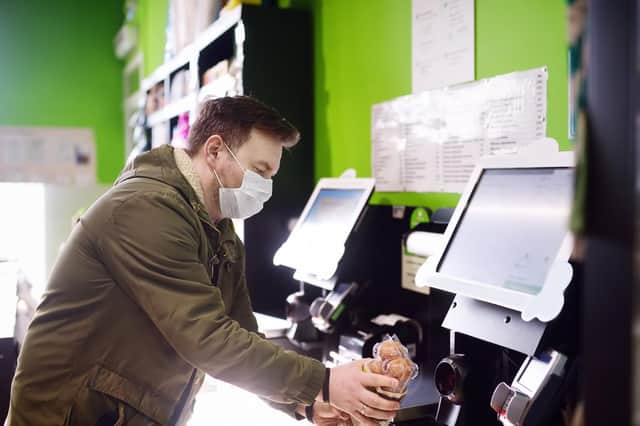Contactless card payment limit increasing to £100 could lead to rise in muggings and fraud – Steve Cardownie


During the pandemic we have all been encouraged to use contactless card payments to reduce close contact between customers and staff, and last week banks informed us that the spending limit on contactless payments was to be increased from £45 to £100 from October 15.
However although this will be welcomed by many who use contactless card payments to purchase expensive or multiple goods on a regular basis, there are already warnings that crime may rise as an unintended consequence.
Advertisement
Hide AdAdvertisement
Hide AdA report for the Jill Dando Institute of Security and Crime Science stated that this move will “likely make card theft more attractive, increasing a broad range of acquisitive crimes including snatch theft of wallets and purses, hold-up robberies and home and vehicle break ins to find cards that can be used fraudulently”.
It goes on to say that “past experience suggests it could attract new cohorts of teen criminals who are more likely to progress to extended criminal careers, with implications for longer term crime rates”.
When contactless card payments were introduced back in 2007, the spending limit was capped at £10, rising to £20 in 2012 and then to £30 in 2015 with the current limit of £45 being set in April last year, but the new limit of £100 will obviously make the theft of credit/debit cards a much more lucrative prospect.
The managing director for Europe at payment business Marqueta, Ian Johnson, said: “The problem with increasing limits on physical contactless payments is if they are stolen or cloned, it will now be even easier for a fraudster to spend large sums of victim’s money in one go. Physical cards provide very little security and a fraudster could continue to use their contactless function until they are cancelled.”
Advertisement
Hide AdAdvertisement
Hide AdAt present if a card is stolen or used fraudulently, banks are obliged to reverse the transaction although a quick number of fraudulent £100 payments before the owner cancels the card may leave them with insufficient funds for their daily shopping, travel etc.
The process of reversing the transaction and restoring the money to the account can sometimes take over a week which is too long and processes should be more immediate if customers are not to be seriously inconvenienced or worse.
Chancellor Rishi Sunak holds the view that the take-up of the new limit will be popular and widespread, saying: “As we begin to open the UK economy and people return to the High Street, the contactless limit increase will make it easier than ever before for people to pay for their shopping, providing a welcome boost to retail that will protect jobs and drive growth.” He also said that such payments can be made “safely and securely”.
However as more people are driven towards cashless payments now that the limit is to be raised, the threat of card theft, along with what else was in a stolen wallet or purse is very real and cannot be ignored.
Advertisement
Hide AdAdvertisement
Hide AdNotwithstanding the fact that banks and financial institutions will be able to track our every move, it would now appear that our personal security could also be compromised.
